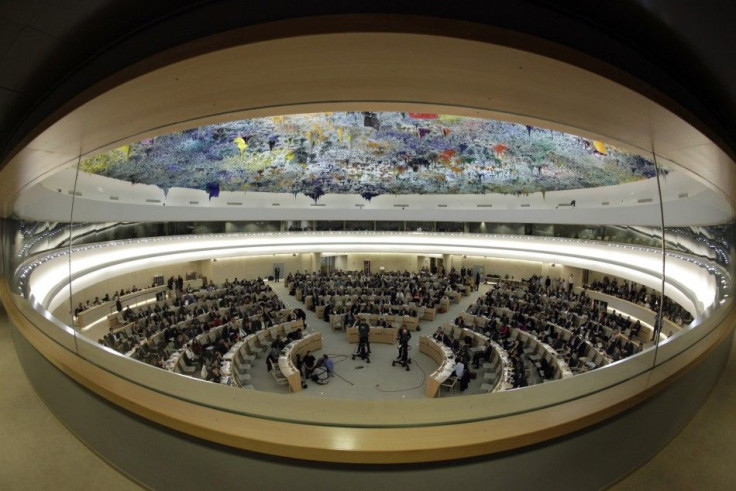United Nations Chief Urges Syria's Referral to ICC

The United Nations High Commissioner for human rights on Friday urged the UN Security Council to refer Syria to the International Criminal Court in the Netherlands following a reveal of evidence by an independent panel that suggests the country's security forces have committed crimes against humanity as it attempts to clamp down on an eight-month-old uprising.
The Syrian authorities' continual ruthless repression, if not stopped now, can drive the country into a full-fledged civil war, UN High Commissioner for Human Rights Navi Pillay told a special session of the Human Rights Council in Geneva. The international community needs to take urgent and effective measures to protect the Syrian people.
Pillay estimated that more than 4,000 people, including 307 children, have been killed since the uprising against Syrian President Bashar al-Assad's government began in March. At least 14,000 have been detained and at least 12, 400 have sought refuge in neighboring countries, Pillay told the session, which was called to discuss the report.
Syrian authorities have taken umbrage with the numbers presented, blaming the bloodshed on armed gangs backed from abroad, The Los Angeles Times reported.
We strongly condemn the fact that the international commission on Syria was not objective in the report, Syria's ambassador to the UN in Geneva, Fayssal Hamwi, was quoted as saying by the Associated Press. The solution cannot come from the corridors of the international community.
The emergency session of the rights council, the third held on Syria since April, was called by the European Union, with support from the United States and Arab countries. On Thursday, the EU imposed a series of sanctions on Thursday against Syrian officials and companies.
Following the example set by the Arab League and the U.S., Turkey on Wednesday slapped a series of economic and financial sanctions on Syria over the government's continued bloody crackdown on its citizens.
The Syrian regime was at an impasse and prefers to repress its people rather than engage in democratic reforms, Turkish Foreign Minister Ahmet Davutoglu said as he announced the suspension of ties with the nation's central bank and the banning of all military sales.
The move piles sanctions on top of those already imposed by the Arab League, the U.S. and the European Union. A longstanding alliance aside, Syria's continued violence on its citizens, and its refusal to heed international calls to end it, has left Turkey with little choice but to suspend relations with its neighbor.
Every bullet fired, every bombed mosque has eliminated the legitimacy of the Syrian leadership and has widened the gap between us, Davutoglu said in a news conference in Ankara.
Syria has squandered the last change that it was given.
Ankara's measures, agreed to on Sunday after a meeting with Arab foreign ministers, are designed to cripple President Bashar al-Assad's regime. The United Nations says at least 3,500 people have been killed in the crackdown.
Syria must immediately cease using force on the people and the forces must immediately withdraw from the cities, Davutoglu said.
Last year, Turkey and Syria did $2.4 billion in trading business, according to the Turkish embassy in Damascus.
The new measures will hit an already weak Syrian economy. The set of nine sanctions announced by the Turkish foreign minister also include freezing the assets of certain officials who are members of the main cadre of leaders, who are the subject of claims of exerting violence against the people or of resorting to illegitimate means.
In addition to the suspension of joint economic relations, Turkey is also halting all political cooperation until a legitimate leadership that is in peace with its people comes to power in Syria.
Further measures will include the pausing of transferring arms and military equipment to the Syrian army and hindering the transporting of military equipment to Syria by Turkish water, land or air.
In a post on Twitter, the city-state's official media office said the United Arab Emirates' two main carriers, Emirates and Etihad Airways, would stop flying to Syria next week, Fox News reported. The post was later deleted as the official at the media office was not permitted to discuss the matter.
At this difficult time, Turkey will continue to stand by the Syrian people resolutely because we strongly believe that we share a common future with the Syrian people and will build it together, Davutoglu said.
The chairman of the international commission of inquiry, Paulo Sergio Pinheiro, a Brazilian professor, told the council Friday that the 307 children killed included 262 boys and 45 girls. November was the deadliest month so far with 56 children killed, he said.
© Copyright IBTimes 2025. All rights reserved.





















